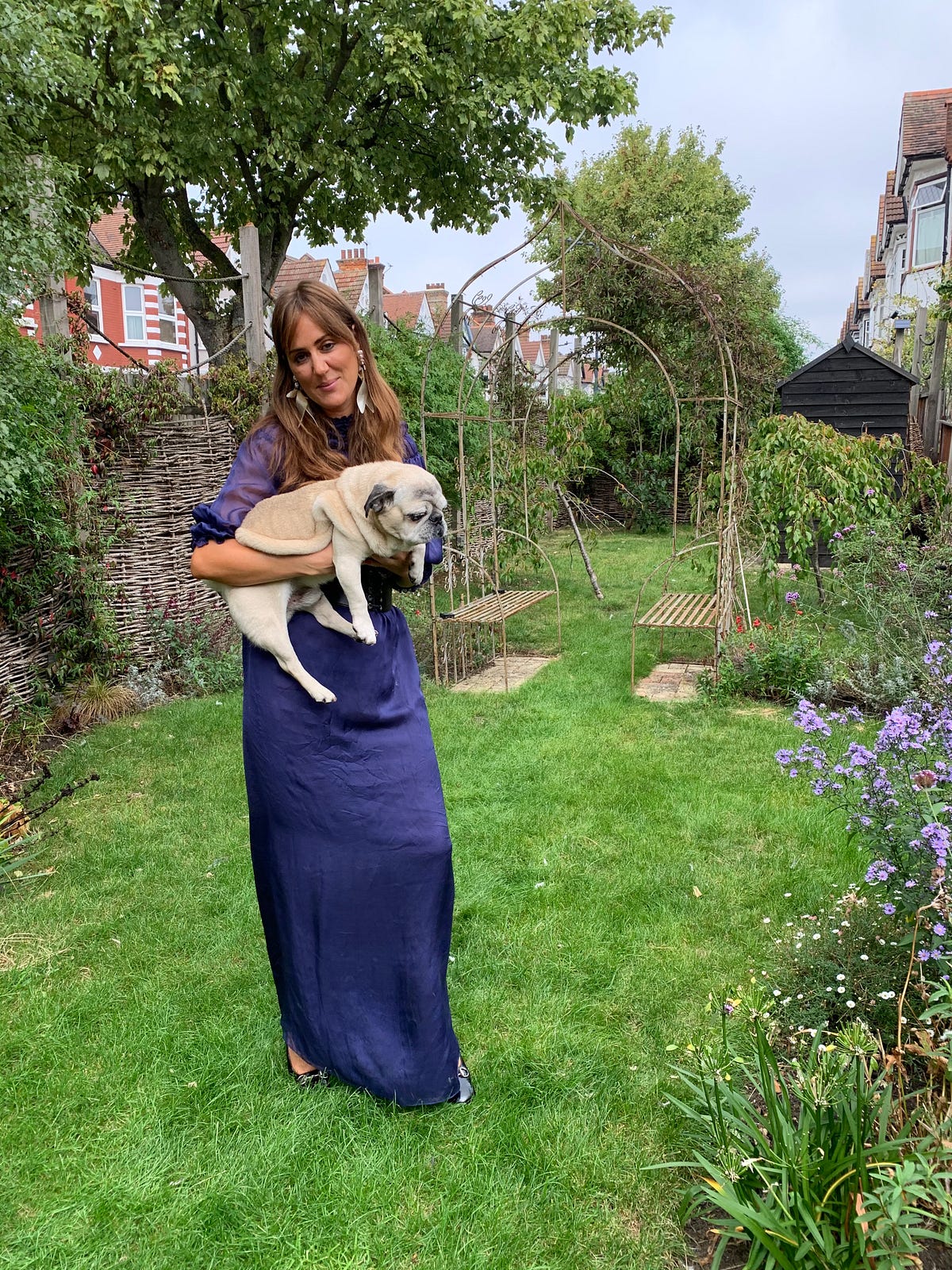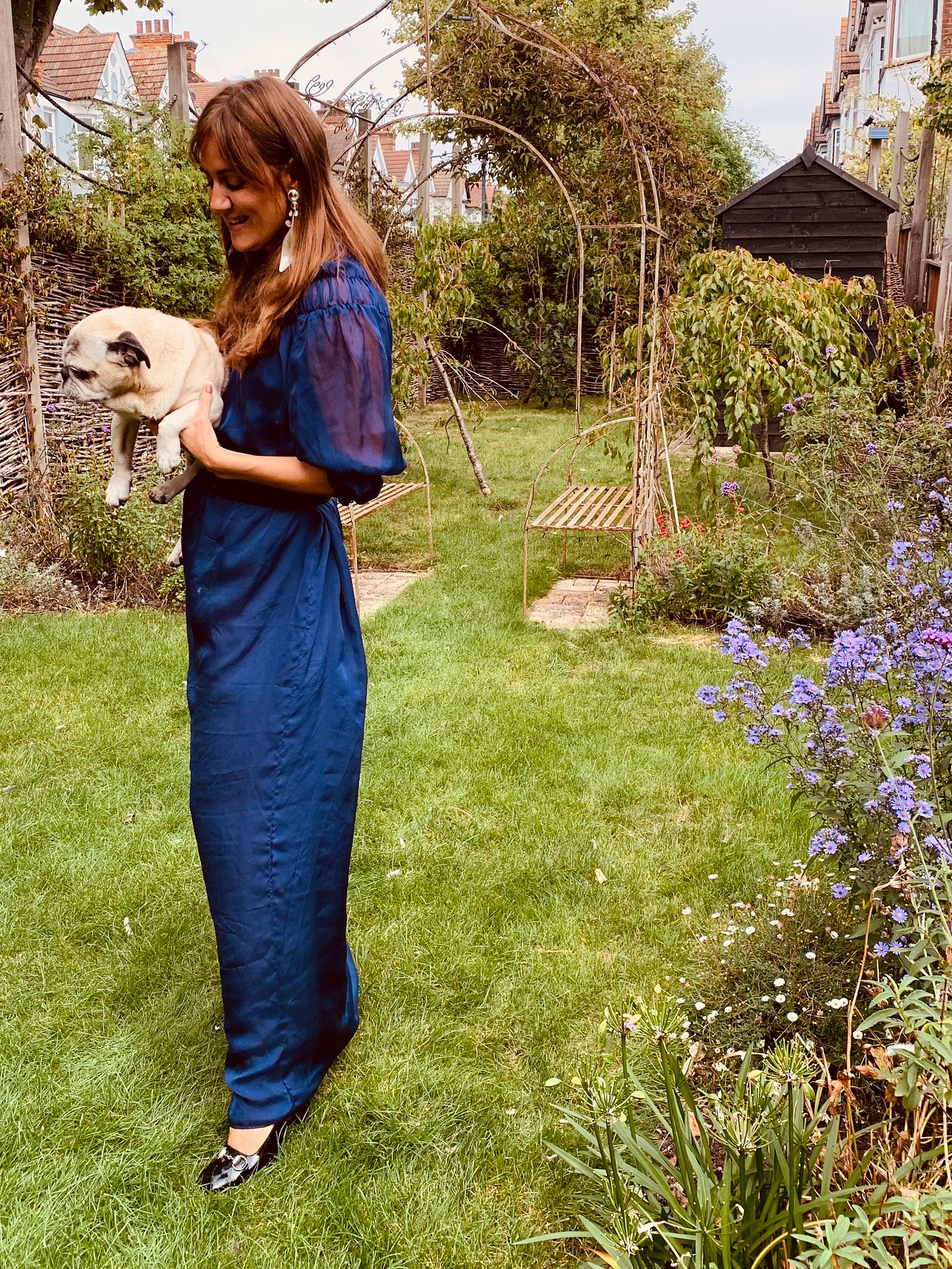Up until recently greed was enwrapping the fashion world, choking on the piles of waste it produced year after year. With fast fashion companies piling up inventory, paying bellow living wages to its workers and caring more about the bottom line, than they did for its people, the industry had kind of lost its way. The substantial environmental damage caused by these giants is something that will take years, if not decades to reverse. The excess, the pollution of rivers, the abuse of labor were all just way too well hidden behind a top that cost only 5$. Sure it’s attractive, because it’s affordable, so people didn’t ask too many questions and just went with it, but this top or a pair of pants, skirt or dress or whatever clothing item oftentimes comes with a cost and almost always that cost is paid by a human being, ten thousand of miles away from you. So why should you care, right? Wrong. Why? Because every time we decide to look the other way, we lose our humanity bit by bit and without it, the world would be a sad and a very grim place to live in and that affects all of us.
“As long as profit takes priority over purpose — we can’t change much.” — Mary Fellows
Well, few years ago, new fashion labels like Bastet Noir started emerging with a mission to alter this reality and along with these labels, people working in the fashion industry started raising their voices too. Through their advocacy for change and educating consumers on the topic, the more they talked, the more we, as consumers, started to uncover the atrocities of an industry which was considered fun and careless. One of this new breed of brave mavens is polymath Mary Fellowes, who has dressed dozens of global household names including some of the biggest names in film, fashion and culture today, from Tracee Ellis Ross to Scarlett Johansson to Olivia Colman. Down to earth, well spoken and incredibly talented, this cosmopolite woman has selflessly agreed to share with us the reason why she’s become a passionate advocate for sustainable fashion brands, as she spills the beans on her complicated relationship with the industry and offers invaluable piece of advice to everyone who wants to follow in her footsteps for the latest instalment of Cool Faces of Bastet Noir.
Who is Mary Fellowes?
International Vogue Editor, stylist, writer, art director, consultant and strategist, celebrity stylist, and now sustainably champion. Also a late 30’s Londoner who has lived in Paris, Istanbul, New York, LA and London.
What’s your morning routine like?
Make homemade hot ginger and turmeric elixir, then meditate. Then check the New York Times and Guardian. On a good day, make a macrobiotic breakfast — usually quinoa flakes with vegan protein and berries. Other days, bacon and eggs.
You are a Central St. Martins graduate whose career has taken a pretty interesting trajectory. Could you tell us a bit more about how you made that leap from being a graduate to becoming Isabella Blow’s assistant to working with celebrities?
I worked for Isabella during St Martins. She taught me how to research and get ideas — she would find inspiration in the most unusual of places such as old 12th century literature — so I suddenly started to see these lateral connections between strange sources and how they could flow into something related to fashion. Going to British Vogue was incredible training — it was at a time we had huge budgets for shoots and the editors could realise all their dreams with huge resources. Kate Phelan and Lucinda Chambers taught me huge amounts. From the beginning there, the fashion assistants such as me dressed front of book talent — such as when a writer or artist has a page on their new book or exhibition. I learned how to translate runway fashion into real women’s bodies. I did really well at it, so Anna Wintour’s team picked me up and had me do it as a freelancer for American Vogue when I left Vogue UK — right up until recently.
Your incredible portfolio includes celebrities like Tracee Ellis Ross, Olivia Colman, Daphne Guiness, Scarlet Johanson to name a few. What was the most challenging and most exciting project you’ve worked on?
Each project is a new day, a new challenge. It’s like giving birth briefly. So they are always exciting. Honestly — as cliched as that sounds. I love getting a new commission — it’s like being given a gift voucher to spend. If i really had to pick one, it would be Olvia Colman for the Oscars. Working with the magical and gifted and charming Prada team was truly a professional Cinderella moment .
You’ve been an avid ambassador for promoting sustainability in fashion through your work. What kind of change would you like to see in the fashion industry and how do you think that will influence the world for the better?
The first change is awareness and an acknowledgement that there is a deep systemic issue in the way fashion is promoted. As long as profit takes priority over purpose — we can’t change much. I am the first to admit that historically I have been part of that promotional system in my former jobs as a magazine editor. I like to say I have been a villain and I am trying to be more of a hero! One step at a time…
The endless cycle of trends and must haves: once that is admitted, and brands are actually prepared to look in the mirror and admit that their supply chains and wastefulness are part of the 2nd most polluting industry on earth — then we can start somewhere. We simply do not need new stuff all the time, season after season. Also a lot of trends don’t suit people — why buy something because it is buzzing? Buy what works for you.
In terms of influence, fashion has a profound ability to affect change — it has millions of fans and followers globally. With the system based on a rapid cycle of innovation and change, as well as aspiration and desirability, big brands such as Gucci and Burberry can really make or break an idea. Where they lead, a lot of people follow. They can influence people to buy ethically, to think about who made their products (not just clothes but furniture, food, cars, any consumer goods), to think about the carbon footprint their item has. And whether it puts good back into the world or takes from it. It’s like a bank account — by buying something, are you creating a deficit / overdraft or credit in the planet’s account!
Three things you wish you knew before starting out…
1. I wish someone had told me that as a creative or artist, even when you know 100% that an idea will turn out amazingly, sometimes you just have to let it go and bear in mind that keeping a happy client is more important than expressing yourself.
2. That fashion can be a very cruel place and not to define one’s self-identity too much by what others think of you
3. That working in New York will be a game changer and the best finishing school ever. I wish I’d gone there much earlier in my career — I am so glad I did anyway in my early thirties, but those lessons would have been useful earlier on!
Biggest failure/setback in life and what you’ve learnt from it?
Between me and my intern, we once threw away a bag of fine jewlery by mistake — about a million pounds worth of diamonds. (When fine Jewlery gets delivered, it comes in very unassuming bags like a Pret-A-Manger bag, so the guard won’t get robbed in the street.) This lovely girl was fastidiously tidying my desk before I was due to board a plane to New York to shoot that same jewlery for a cover story. It was totally my fault for being in a rush. Luckily, very luckily, because I always used to smoke cigarettes and gossip with the courier boys downstairs, and give them press day beauty giveaways to pass onto their girlfriends, they always went the extra mile for me. They used to say I was one of the gang and we used to howl with laughter for hours together and go down the pub sometimes too. Thanks to the fact they were my pals, the jewellery was then prized from the jaws of landfill at the eleventh hour. The lesson? I’ve learned over the years to always go out of my way for the people that don’t enjoy the same level of glamour or prestige as I might have in my job and to get to know them as human beings, make them feel valued and included, and to try and to be the exception to that cliche and rule — that fashion people are bitchy. As some of us do actually have big hearts!
Books that changed your life
Elena Ferrante’s Naples Series for its poetry and surrealism and depth. Anything by David Sedaris for sheer absurdity and humour. Nelson Mandela’s Long Walk To Freedom for its unflinching humility and courage.
Favorite female empowerment speech
Tracee Ellis Ross empowerement speech at the Women in Film awards
Watching Tracee Ellis Ross talk live when I was at the Women In Film awards in Los Angeles, as a guest of Maxmara. She managed to combine warmth, humour and power in the most human and original, engaging way.
What’s in your Bastet Noir cart?
The green Ali McGraw dress. I wore it in midnight blue already and love it so much — it’s as comfortable as a kaftan or nightdress, but with the high neck and narrow column silhouette, super chic. My boyfriend said its’ mystery is the sexiest thing about it !
If you liked Mary’s story, there’s plenty more to come, just hit that sign up button to get in our inner circle of coolness and never ever miss a thang.

Let’s ask ourselves the following question: What separates an impactful business from one that merely exists? The answer would be pas...
COOL FACES OF BASTET NOIR: Meet Nathalia Grisard, Founder of Activewear Brand gngr bees

Stepping outside your comfort zone and embracing the unknown can be one of the most daun...



